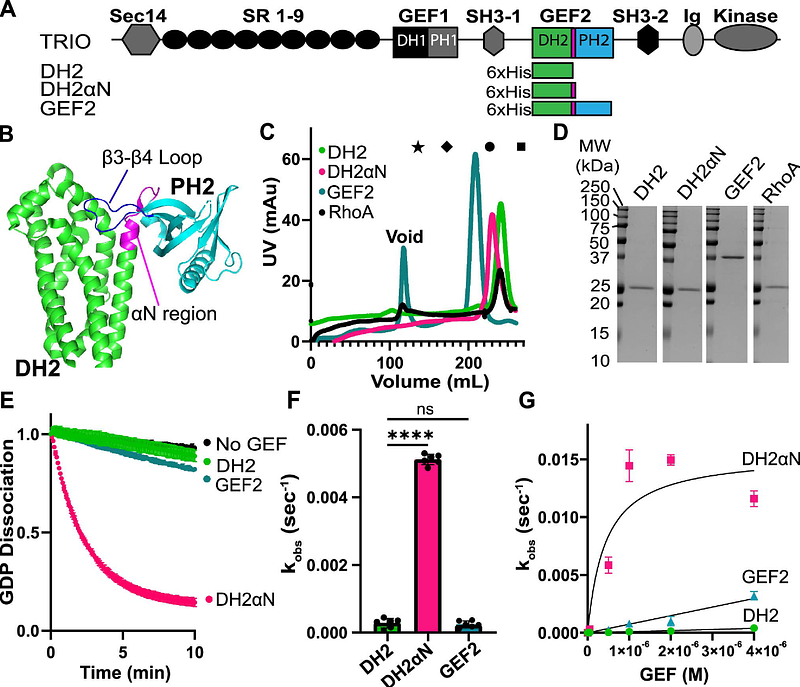Genetic variants linked to neurodevelopmental disorders within the β3-β4 loop of the TRIO PH2 domain release autoinhibition of GEF2 activity.

Genetic variants linked to neurodevelopmental disorders within the β3-β4 loop of the TRIO PH2 domain release autoinhibition of GEF2 activity.
Carrizales, M. G.; Boulton, A.; Koleske, A. J.
AbstractThe TRIO protein contains two guanine exchange factor (GEF) domains, GEF1 and GEF2, which coordinate cytoskeletal rearrangements by activating Rho family GTPases. Rare variants that impact TRIO GEF1 function are associated with autism spectrum disorder, developmental delay, and intellectual disability, but variants are also found throughout the gene. GEF1 promotes GTP exchange on Rac1 and RhoG, while GEF2 activates RhoA. Although GEF1 and GEF2 share a common architecture, the pleckstrin homology (PH) domain in TRIO GEF1 (PH1) assists its activity, while the PH domain in GEF2 (PH2) inhibits its activation of RhoA. A series of single point variants in the unique {beta}3-{beta}4 loop of TRIO PH2 has been identified in patients with neurodevelopmental disorders (NDDs), but how they impact TRIO GEF2 activity is not known. Using an in vitro fluorescence-based assay to assess GEF2 exchange activity on RhoA, we demonstrate that variants within the {beta}3-{beta}4 loop relieve GEF2 autoinhibition. Activation of RhoA inhibits neurite outgrowth in Neuro-2A (N2A) cells. GEF2 expression in N2A cells significantly reduces neurite outgrowth, and expression of the G2211E activating GEF2 variant enhances this effect. Together, our findings reveal key interactions and structural constraints for GEF2 autoinhibition and how this mechanism is a target for disruption by NDD-associated variations.